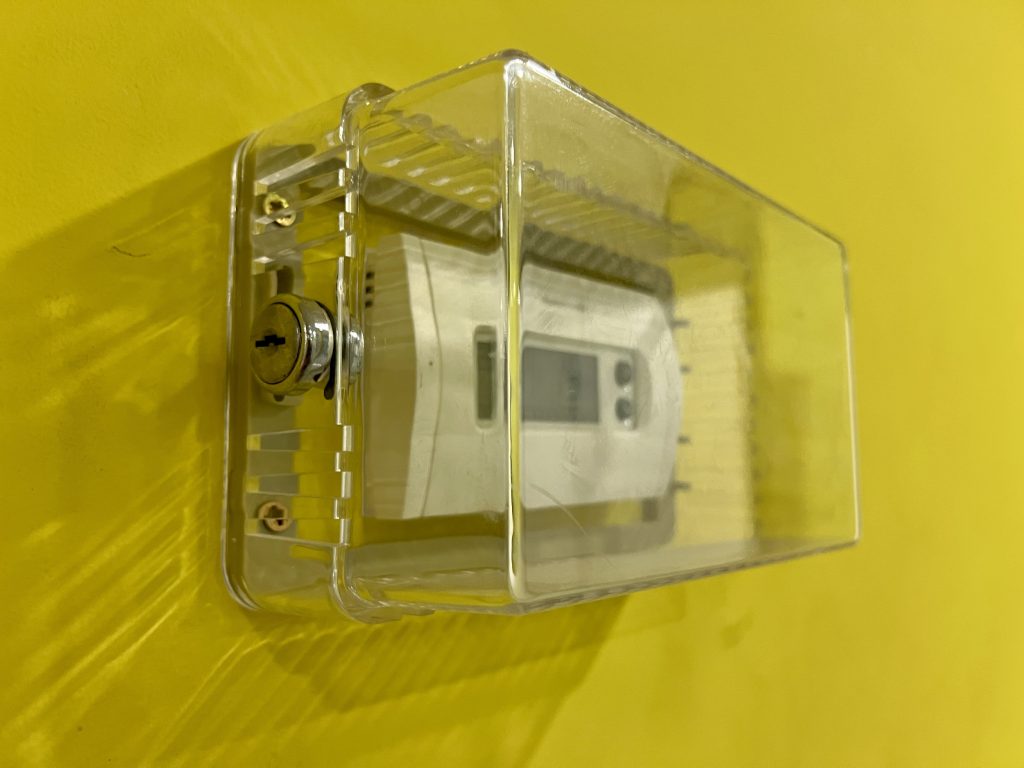A Reddit post depicting a locked thermostat in a supported accommodation unit in England during winter has sparked widespread discussion about tenant rights and landlord responsibilities. The post, which quickly gained traction, shows a thermostat encased in a lockbox, preventing the tenant from regulating the temperature. The tenant explained that the landlord’s justification for this action was to prevent boiler pressure loss, an issue that ironically persists, leaving the tenant without heating or hot water intermittently. The situation is further complicated by the tenant’s residency in supported accommodation, which raises questions about the applicability of standard tenant rights.
The legality and ethical implications of the landlord’s actions have been debated extensively online. Experts in property law suggest that while there isn’t a specific law prohibiting locking thermostats, landlords are obligated to provide safe and comfortable living conditions. The Homes (Fitness for Human Habitation) Act 2018 in the U.K. mandates landlords to ensure adequate heating, and a locked thermostat resulting in dangerously low temperatures could be considered a violation. The consensus among legal experts and online commentators is that tenants who pay for heating should reasonably control it. Even in cases where the landlord covers heating costs, imposing unsafe temperature limits is unacceptable.
The crux of the issue lies in the balance between a landlord’s right to manage their property and a tenant’s right to comfortable living conditions. While landlords may implement measures to protect their property and control costs, these actions cannot infringe upon the tenant’s basic right to a habitable environment. The tenant’s situation highlights the potential vulnerabilities of individuals in supported accommodation, who may be less aware of their rights or less empowered to assert them. The incident has prompted calls for clearer guidelines regarding heating control in such accommodations to prevent similar situations.
The discussion around the locked thermostat has extended beyond the specific incident, highlighting broader issues of tenant rights and landlord responsibilities, particularly during extreme weather conditions. The online community has rallied around the tenant, offering advice ranging from reviewing the tenancy agreement to seeking legal counsel. The prevalent sentiment is that the landlord’s actions are likely unlawful and exploit the tenant’s vulnerable position. Many commentators encouraged the tenant to document the situation, including temperature readings and communication with the landlord, to build a case if legal action becomes necessary.
The incident underscores the importance of clear communication and mutual understanding between landlords and tenants. While landlords are entitled to protect their property, they must do so in a manner that respects tenant rights and ensures their well-being. Open dialogue about heating control, including expectations and limitations, can prevent misunderstandings and potential conflicts. Lease agreements should clearly outline the responsibilities of both parties concerning heating, but these agreements must always adhere to existing housing laws.
The widespread attention garnered by this seemingly minor incident reflects a growing awareness of tenant rights and the importance of safe and comfortable living conditions. It serves as a reminder that landlords must prioritize the well-being of their tenants, especially during challenging weather conditions. The online discussion surrounding the locked thermostat has empowered tenants to advocate for their rights and seek legal recourse when necessary, contributing to a more equitable and informed housing environment. The case also highlights the need for continued vigilance and advocacy to ensure that vulnerable tenants, particularly those in supported accommodation, are protected from exploitation and provided with the basic necessities for a safe and healthy living environment.










